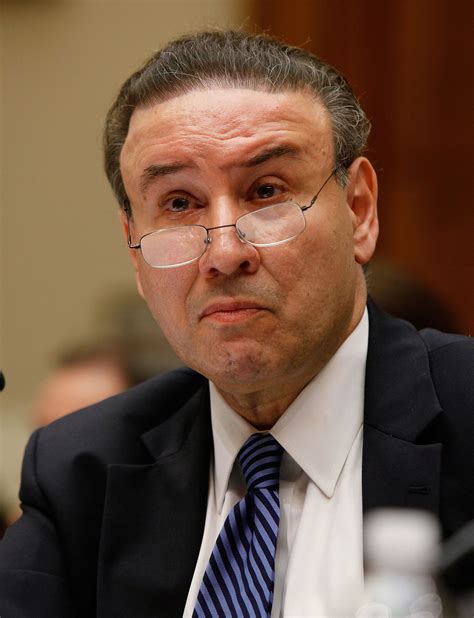A Quote by Anthony de Mello
The law is an expression of God 's holy will and as such must be honored and loved," said the preacher piously. "Rubbish," said the Master. "The law is a necessary evil and as such must be cut down to the barest minimum. Show me a lover of the law and I will show you a muttonheaded tyrant .
Related Quotes
The civil magistrate cannot function without some ethical guidance, without some standard of good and evil. If that standard is not to be the revealed law of God (which, we must note, was addressed specifically to perennial problems in political morality), then what will it be? In some form or expression it will have to be the law of man (or men) — the standard of self-law or autonomy.
Lower the Law and you dim the light by which man perceives his guilt; this is a very serious loss to the sinner rather than a gain; for it lessens the likelihood of his conviction and conversion. I say you have deprived the gospel of its ablest auxiliary [its most powerful weapon] when you have set aside the Law. You have taken away from it the schoolmaster that is to bring men to Christ . . . They will never accept grace till they tremble before a just and holy Law. Therefore the Law serves a most necessary purpose, and it must not be removed from its place.
Once when my father-in-law was leaving the house after lunch to return to the field to work, my mother-in-law said, 'Albert, you get right back in here and tell me you love me.' He grinned and jokingly said, 'Elsie, when we were married, I told you I loved you, and if that ever changes, I'll let you know.' It's hard to overuse the expression, 'I love you.' Use it daily.
When you say there's too much evil in this world you assume there's good. When you assume there's good, you assume there's such a thing as a moral law on the basis of which to differentiate between good and evil. But if you assume a moral law, you must posit a moral Law Giver, but that's Who you're trying to disprove and not prove. Because if there's no moral Law Giver, there's no moral law. If there's no moral law, there's no good. If there's no good, there's no evil. What is your question?
God gave a law ... called justice. But they have made a law for themselves that is terrible and intricate, and they cannot escape it, for the evil will and the good will are caught alike in its meshes, and it is darkness to the eyes that see and a stumbling block to the feet that run. This law is called necessity.
Law-abiding Americans deserve to know that their government will not secretly tap their phones, read their medical records, access their library accounts or otherwise invade their personal lives, with no oversight or accountability. Law-abiding Americans also deserve to know that when law enforcement can show an impartial judge clear evidence of criminal activity or a threat to national security, swift and decisive action will be taken to protect the public. That is the balance we must achieve.
The time has been in Israel under the law of God, the celestial law, or that which pertains to the celestial law, for it is one of the laws of that kingdom where our Father dwells, that if a man was found guilty of adultery, he must have his blood shed, and that is near at hand. But now I say, in the name of the Lord, that if this people will sin no more, but faithfully live their religion, their sins will be forgiven them without taking life
Thus, if there exists a law which sanctions slavery or monopoly, oppression or robbery, in any form whatever, it must not even be mentioned. For how can it be mentioned without damaging the respect which it inspires? Still further, morality and political economy must be taught from the point of view of this law; from the supposition that it must be a just law merely because it is a law. Another effect of this tragic perversion of the law is that it gives an exaggerated importance to political passions and conflicts, and to politics in general.
Grace means that God does something for me; law means that I do something for God. God has certain holy and righteous demands which he places upon me: that is law. Now if law means that God requires something of me for their fulfillment, then deliverance from law means he no longer requires that from me, but himself provides it.




































